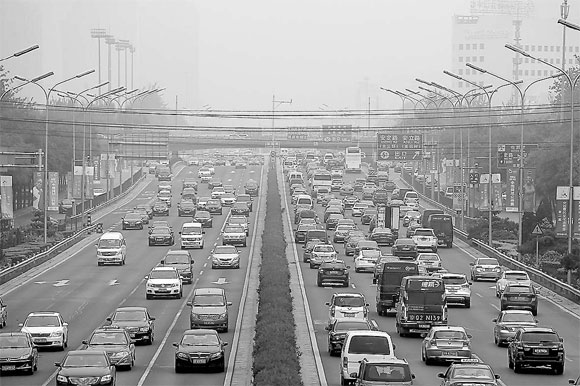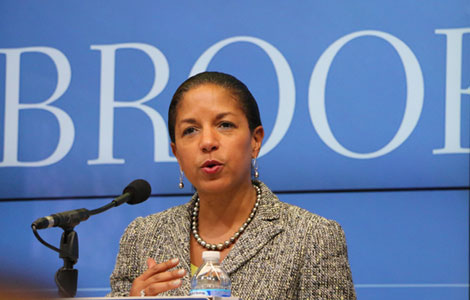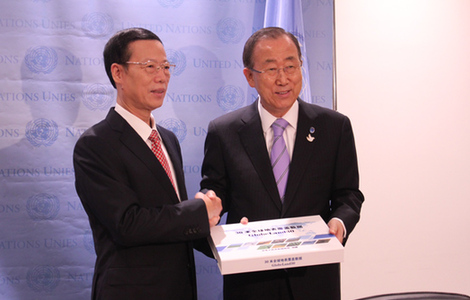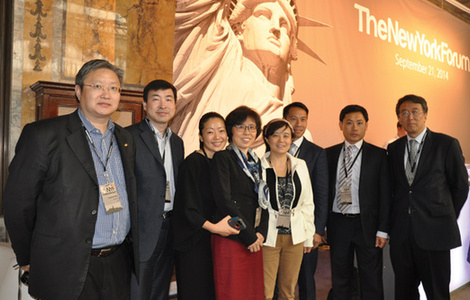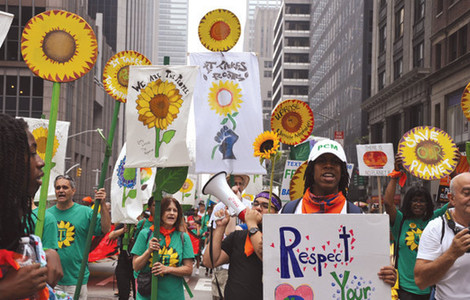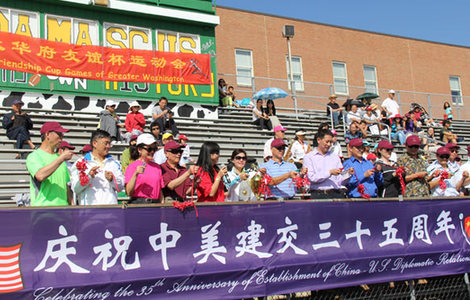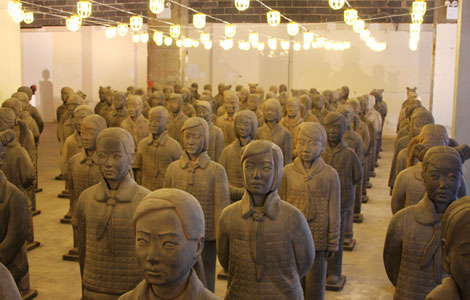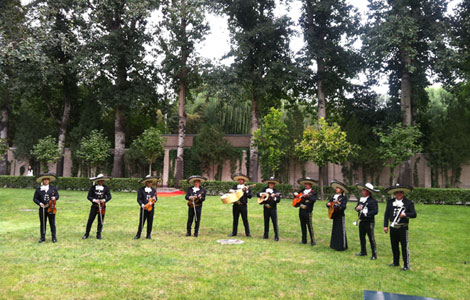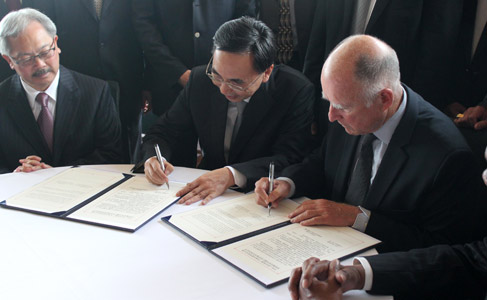Traffic clogs Beijing on Car Free Day
Updated: 2014-09-23 07:58
By Wang Xiaodong(China Daily USA)
|
||||||||
Despite the government's efforts to promote public transportation, heavy traffic still congested Beijing's major roads on Monday - World Car Free Day - prompting calls from transport experts for more concrete efforts to develop public transportation.
The traffic performance index for Beijing roads reached 8.6 at about 8:30 am, indicating heavy traffic congestion, and the average speed of vehicles was only 21.3 km per hour, according to the Beijing Transportation Commission.
The TPI inside the Second Ring Road was 9.6, with an average speed of 16.8 km per hour, the commission said.
The commission uses the TPI to measure congestion on a scale of zero to 10, with a higher value suggesting heavier congestion. September is usually the most congested month in Beijing, with the new school year and holidays such as the Mid-Autumn Festival and National Day contributing to congestion.
To alleviate traffic and reduce air pollution, city authorities have been promoting the use of green transportation and encouraging the use of public transportation on World Car Free Day since 2007.
The number of cities in China that pledged to celebrate China's Car Free Day, also on Monday, increased to 154 this year - including Beijing - and account for 200 million urban residents, Tang Kai, chief planner of the Ministry of Housing and Urban-Rural Development, said last week.
But on Monday, many large cities, including Shenzhen and Guangzhou in Guangdong province and Hefei, Anhui province, were seriously congested, according to media reports.
The Beijing Transportation Commission announced this month that it would take measures to ease expected traffic congestion, including improving public transport service, extending service hours of certain subways and expanding public rental bike services.
Four more subway lines, with a total length of 62 kilometers, are expected to open in the capital by the end of the year, extending the city's subway network to more than 500 kilometers, one of the longest in the world.
Chen Yanyan, a council member of the Beijing Urban Planning Society, said concrete measures rather than public awareness promotions are needed to resolve Beijing's traffic problems.
"Public transportation is still less attractive to city dwellers than cars," she said. Most buses and subway trains in Beijing are crowded, and pedestrians and cyclists in general face a less safe environment compared with car owners, she added.
"The authorities should make more efforts to improve public transport services and increase the cost of using a car, such as charging a traffic congestion fee," she said.
Despite authorities' efforts to promote public transportation, 32.7 percent of Beijing residents relied on cars for transportation last year, compared with 23.2 percent in 2000, and the figure is still on the rise, according to figures of the transportation commission.
By early 2012, there were more than 5 million motor vehicles in Beijing.
Zhang Zhuting, a law professor at the Transportation Management Institute, said that "a fast, convenient, comfortable, punctual and green public transportation system" is needed.
"Officials, lawmakers and the general public should realize it is not possible to satisfy everyone, and the needs of those taking public transportation should be met first", he said.
wangxiaodong@chinadaily.com.cn
|
Traffic congestion slows the morning drive in Beijing on Monday. Wang Jing / China Daily |
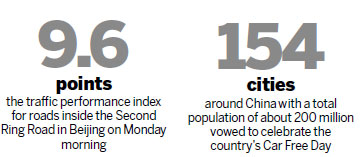
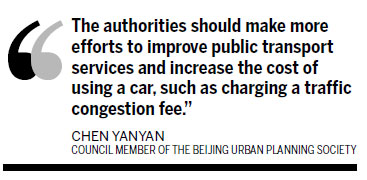
(China Daily USA 09/23/2014 page4)
Most Viewed
Editor's Picks

|

|

|

|

|

|
Today's Top News
UN chief calls for intensified efforts on sustainable growth
Rice talks about relations between US, China
Xi stresses military headquarters' loyalty
Guideline helps battle against terrorism
Alibaba's IPO is only just the beginning: Ma
US group seeks 'no vacancy' for China's hotels
Rio expo gives China a showcase for its oil industry
Alibaba makes IPO history
US Weekly

|

|
